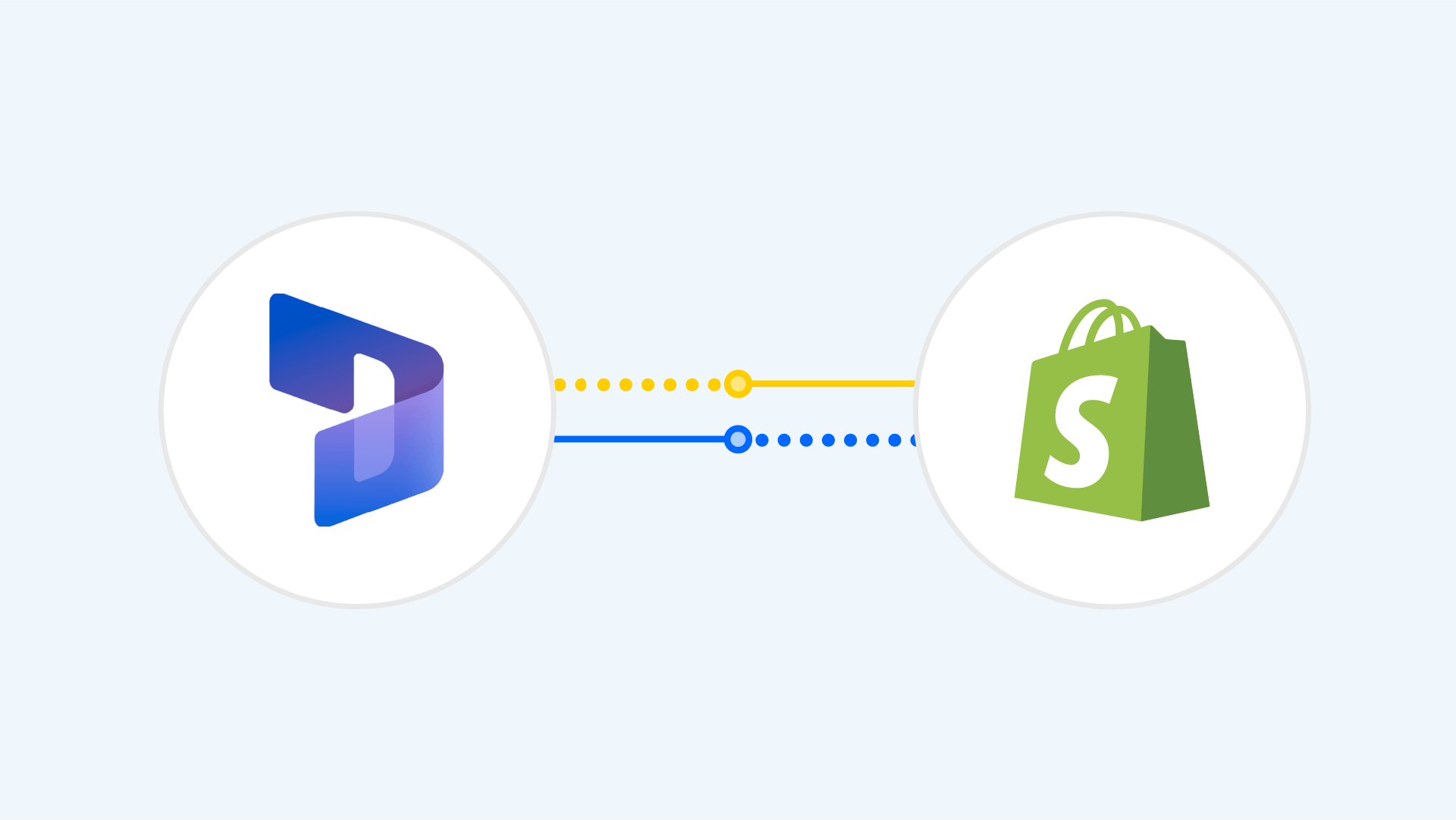
Power Up Your Shopify Store: The Indispensable Role of CRM Integration
Running a successful Shopify store is more than just setting up a beautiful storefront and listing compelling products. It’s about building lasting relationships with your customers, understanding their needs, and delivering exceptional experiences that keep them coming back for more. While Shopify provides a solid platform for e-commerce transactions, it lacks the robust customer relationship management (CRM) capabilities needed for sustained growth. This is where CRM integration becomes not just a benefit, but a necessity.
Why Integrate CRM with Shopify? Beyond Basic Sales Tracking
Shopify excels at processing orders and managing products, but it doesn’t provide the deep customer insights and relationship-building tools offered by a dedicated CRM system. Integrating the two platforms unlocks a wealth of advantages, allowing you to:
- Centralize Customer Data: The most fundamental benefit is consolidating all customer information – from purchase history and browsing behavior to email interactions and support tickets – into a single, unified view. No more sifting through multiple platforms to understand a customer’s journey. This 360-degree view empowers you to personalize interactions and provide more relevant support.
- Personalized Marketing: Segmenting your customer base based on purchase history, demographics, and engagement levels allows for highly targeted marketing campaigns. Imagine sending personalized email promotions to customers who frequently buy a specific product category, or offering exclusive discounts to loyal customers who have made multiple purchases. CRM integration makes this level of personalization achievable and scalable.
- Improved Customer Service: With instant access to a customer’s complete history, your support team can provide faster, more efficient, and more personalized service. They can quickly understand the context of a customer’s issue, anticipate their needs, and offer solutions that truly address their concerns. This leads to increased customer satisfaction and loyalty.
- Automated Sales Processes: Automate repetitive tasks such as sending welcome emails, following up on abandoned carts, and requesting product reviews. This frees up your time to focus on more strategic initiatives, such as product development, marketing strategy, and business growth.
- Enhanced Sales Insights: Track key sales metrics, identify trends, and gain a deeper understanding of your customer behavior. Analyze which products are most popular, which marketing campaigns are most effective, and which customer segments are most valuable. This data-driven approach allows you to make informed decisions that optimize your sales and marketing efforts.
- Increased Customer Retention: By understanding your customers’ needs and preferences, you can proactively address potential issues and build stronger relationships. Personalized communication, targeted offers, and exceptional service all contribute to increased customer retention rates, which is far more cost-effective than acquiring new customers.
- Effective Lead Management: If you’re generating leads through your Shopify store (e.g., through newsletter sign-ups or contact forms), a CRM system allows you to nurture those leads through targeted communication and convert them into paying customers. You can track their engagement, qualify their interest, and provide them with the information they need to make a purchase decision.
Key Features to Look for in a Shopify-Integrated CRM
When choosing a CRM system for your Shopify store, consider the following key features:
- Seamless Integration: The integration should be straightforward and reliable, allowing for automatic synchronization of data between Shopify and the CRM. Look for pre-built integrations or APIs that facilitate seamless data flow.
- Contact Management: Robust contact management capabilities are essential for storing and organizing customer information. Look for features such as custom fields, segmentation, tagging, and activity tracking.
- Email Marketing Automation: The CRM should offer tools for creating and sending personalized email campaigns, automating email sequences, and tracking email performance. Integration with email marketing platforms like Mailchimp or Klaviyo can be beneficial.
- Sales Pipeline Management: If you have a sales team, the CRM should provide tools for managing your sales pipeline, tracking deals, and forecasting sales. Features such as lead scoring, opportunity tracking, and sales automation can help your team close more deals.
- Customer Service Tools: Look for features such as ticketing systems, live chat integration, and knowledge base management to provide excellent customer support.
- Reporting and Analytics: The CRM should offer comprehensive reporting and analytics capabilities to track key metrics and gain insights into your customer behavior. Look for customizable dashboards, report generation tools, and data visualization features.
- Automation Capabilities: The ability to automate tasks and workflows is crucial for saving time and improving efficiency. Look for features such as automated email sequences, task assignment, and data synchronization.
- Scalability: Choose a CRM system that can scale with your business as you grow. Consider factors such as the number of contacts, users, and transactions you anticipate handling.
- Mobile Accessibility: In today’s mobile-first world, it’s important to choose a CRM system that is accessible on mobile devices. This allows your team to access customer information and manage their tasks from anywhere.
- Pricing: CRM pricing varies widely depending on the features and number of users. Consider your budget and choose a CRM system that offers the best value for your needs.
Popular CRM Options That Integrate with Shopify
Several CRM systems offer seamless integration with Shopify. Here are a few popular options to consider:
- HubSpot CRM: A powerful and popular option, HubSpot offers a free CRM with essential features, as well as paid plans with advanced capabilities. Its integration with Shopify is seamless, allowing you to track customer data, automate marketing campaigns, and provide personalized customer service. HubSpot is known for its user-friendly interface and extensive marketing automation features.
- Zoho CRM: Zoho CRM is a comprehensive CRM system that offers a wide range of features at a competitive price. Its integration with Shopify allows you to manage customer data, track sales, and automate marketing campaigns. Zoho CRM is a good option for businesses that need a robust CRM system with a wide range of features.
- Salesforce Sales Cloud: Salesforce is the leading CRM system in the world, offering a wide range of features and integrations. While it can be more complex to set up than other options, its Shopify integration allows you to manage customer data, track sales, and automate marketing campaigns. Salesforce is a good option for larger businesses with complex sales processes.
- Klaviyo: While primarily an email marketing platform, Klaviyo offers robust CRM-like features and integrates deeply with Shopify. It’s particularly strong for e-commerce businesses looking to personalize their email marketing and track customer behavior.
- ActiveCampaign: ActiveCampaign is another popular marketing automation platform that offers CRM features and integrates with Shopify. It’s known for its powerful automation capabilities and its ability to segment customers based on their behavior.
- Nutshell: A simpler CRM focusing on sales teams, Nutshell integrates with Shopify to provide a clear view of customer interactions and sales pipelines. It’s a good option for smaller businesses looking for a straightforward and easy-to-use CRM.
Making the Right Choice for Your Business
Choosing the right CRM for your Shopify store depends on your specific needs, budget, and technical expertise. Consider the following factors when making your decision:
- Your Business Size: Small businesses may benefit from simpler, more affordable CRM systems, while larger businesses may need more robust and feature-rich solutions.
- Your Sales Process: If you have a complex sales process, you’ll need a CRM system that can manage your sales pipeline, track deals, and automate sales tasks.
- Your Marketing Needs: If you want to personalize your marketing campaigns, you’ll need a CRM system that offers email marketing automation, segmentation, and personalization features.
- Your Customer Service Needs: If you want to provide excellent customer support, you’ll need a CRM system that offers ticketing systems, live chat integration, and knowledge base management.
- Your Budget: CRM pricing varies widely, so consider your budget and choose a CRM system that offers the best value for your needs.
Conclusion: Invest in Customer Relationships for Long-Term Success
Integrating a CRM system with your Shopify store is a strategic investment that can pay dividends in the form of increased sales, improved customer loyalty, and enhanced efficiency. By centralizing customer data, personalizing marketing campaigns, and providing exceptional customer service, you can build stronger relationships with your customers and drive long-term growth for your business. Take the time to carefully evaluate your needs and choose a CRM system that aligns with your goals. The result will be a more powerful, customer-centric, and ultimately, more profitable Shopify store.

